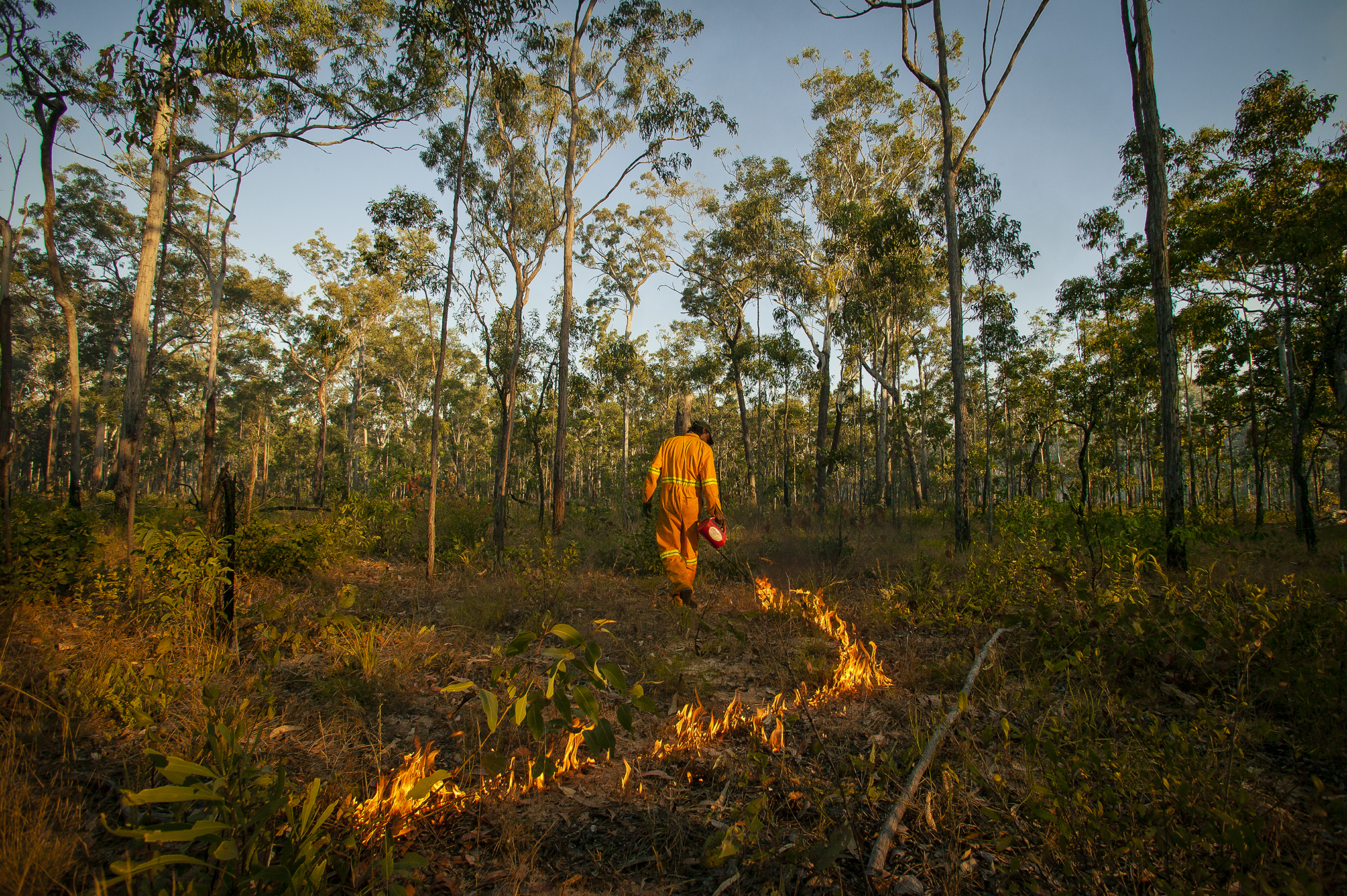8 May 2018
Fire has been a critical component of Australian Aboriginal culture and resource management for millennia and today, where Aboriginal people conduct fire management on Indigenous land, many assume that contemporary methods align with traditional practices.

Photo: Glenn Campbell
However, Hub researcher Dr Justin Perry of CSIRO investigated the divergence between traditional Aboriginal and contemporary fire management practices on the traditional lands of the Wik people on western Cape York Peninsula with Senior Wik and Kugu Rangers Horace Wikmunea and Sidney Wolmby, as part of a NERP project led by Melissa Sinclair of the University of NSW. His recent paper combines Traditional Owners’ experience and understanding with anthropological and ecological perspectives to reveal the differences.
The research shows that financial incentives, contractual obligations and modern considerations such as the protection of property often drive contemporary practices. In contrast historically Traditional Owners determined their own fire management on very fine scales for specific outcomes such as hunting, and governed it by rules that determined how people moved across the landscape and how resources were partitioned and shared.
The study concludes that substantial biodiversity and social benefits could be gained by combining contemporary fire management practices with local-scale traditional fire management. Justin Perry is now leading a Cape York Peninsula NESP project working with Indigenous communities to inform land and water management decisions by developing robust metrics for feral animal management.
Want to know more about the Resilient Landscapes Hub's activities and our research into practical solutions to environmental problems? Stay informed about activities, research, publications, events and more through the Hub newsletter.